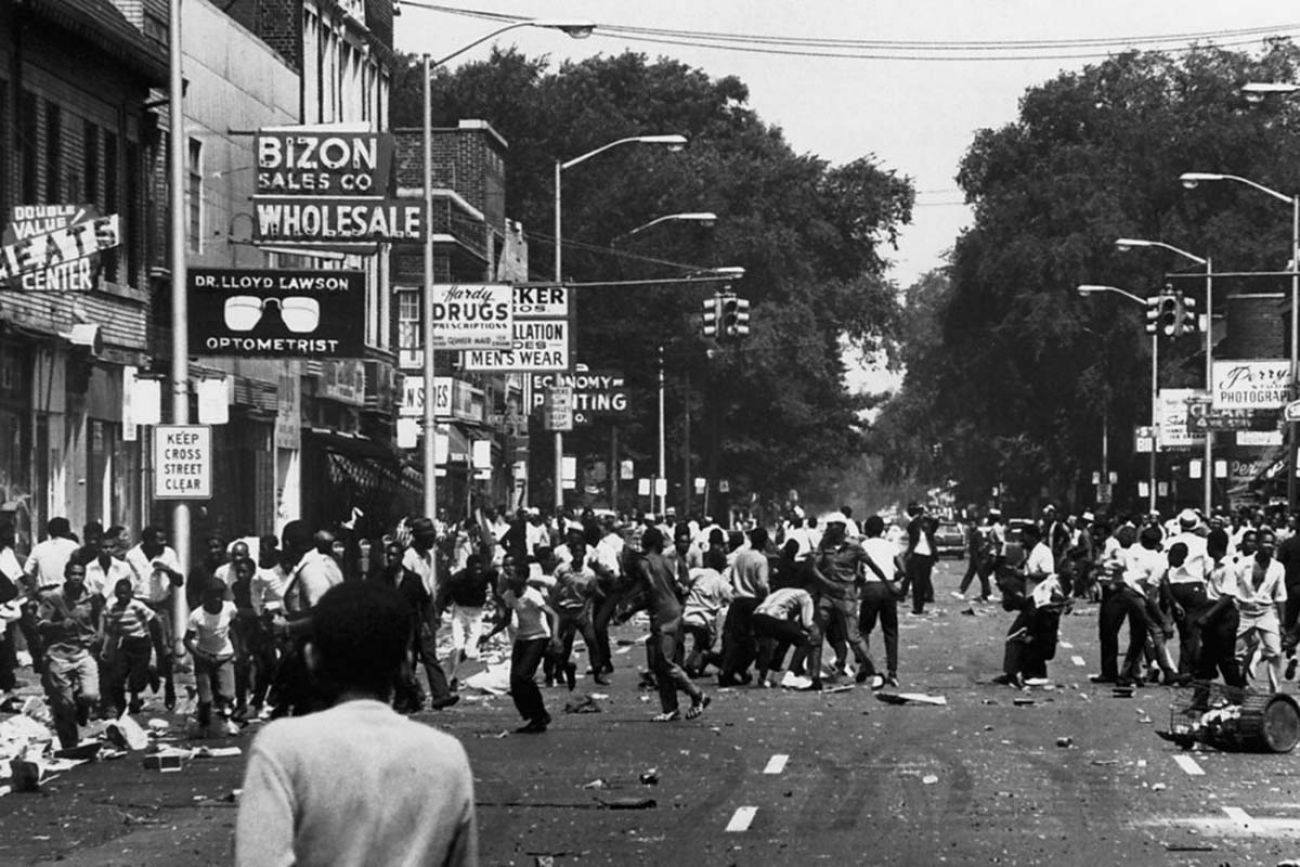More showings added for documentary on ‘67 Detroit uprisings

A Bridge Magazine-linked documentary that recounts the devastating 1967 Detroit civil disturbances continues to sell out theaters and will hit the small screen this summer.
The film, “12th and Clairmount,” was produced by the Detroit Free Press in collaboration with Bridge and WXYZ-TV. The film debuted in March and additional showings have been added in response to public demand.
Recently added screenings have sold out quickly, but tickets were still available as of Tuesday for a 7:15 p.m. show June 3 at the Michigan Theater in Ann Arbor as part of the Cinetopia Film Festival. Tickets cost $12, or $9 for members of the festival's partner organizations.
Additional screenings will soon be announced, and the film also will be broadcast on WXYZ this summer closer to the 50th anniversary of the uprising that began July 23, 1967.
Panel discussions follow each show with the filmmaking team, including the director, Brian Kaufman, executive video producer at the Free Press, and co-producer and writer Bill McGraw, who recently retired from Bridge Magazine.
The film relates the story of the 1967 uprising, from the racism that led to the first clash with police to the deaths of 43 people, injuries and arrests of thousands of others, and the worst destruction of neighborhoods of any uprising happening nationwide during that violent summer.
The documentary is told primarily using historical interviews with white and black residents, old media footage and vintage home videos, along with some current illustrations.
The film is named for the intersection in Detroit where the unrest began – 12th Street and Clairmount Avenue – in response to a police raid and arrests of black residents at an after-hours speakeasy known as a blind pig.
McGraw, an expert on Detroit history, said there are a few reasons the documentary has caught on with the public.
“Many people have no memories of 50 years ago, or faulty memories, and this movie takes them right back there,” McGraw said.
“It's also a crowd-sourced project. We used oral histories from metro Detroiters at the Detroit Historical Museum and home movies collected by the (Detroit Institute of Arts) on top of the traditional historical source material. Finally, director Brian Kaufman weaves this all together into a riveting story. People can't take their eyes off the screen.”
McGraw wrote several articles last year for Bridge and the Detroit Journalism Cooperative leading to the 50th anniversary of the events some call a riot and others, a rebellion. Among other articles, McGraw hauntingly recounted what happened to the family of the man believed to have thrown the first bottle that sparked the violence.
That article and several others by Bridge and its reporting partners at the DJC is included in “The Intersection: What Detroit has gained, and lost, 50 years after the uprisings of 1967,” a book based on a yearlong investigation into the social and economic conditions in Detroit that led to the violence. The book examines to what extent those same conditions exist today.
The book, which is published by Mission Point Press in Traverse City, will be available for purchase at upcoming screenings of “12th and Clairmount.”
The Detroit Journalism Cooperative consists of Bridge, Detroit Public Television, WDET Detroit Public Radio, Michigan Radio, Chalkbeat Detroit, and five ethnic publications of New Michigan Media: The Arab American News, Latino Press, The Jewish News, MI Asian and The Michigan Chronicle.
The cooperative is funded by the John S. and James L. Knight Foundation, The Ford Foundation and the Corporation for Public Broadcasting.
To focus on community life and the city’s future after bankruptcy, five nonprofit media outlets have formed the Detroit Journalism Cooperative (DJC).
The Center for Michigan’s Bridge Magazine is the convening partner for the group, which includes Detroit Public Television (DPTV), Michigan Radio, WDET, Chalkbeat Detroit and New Michigan Media, a partnership of ethnic and minority newspapers.
Funded by the John S. and James L. Knight Foundation and the Ford Foundation, the DJC partners are reporting about and creating community engagement opportunities relevant to the city’s bankruptcy, recovery and restructuring.
See what new members are saying about why they donated to Bridge Michigan:
- “In order for this information to be accurate and unbiased it must be underwritten by its readers, not by special interests.” - Larry S.
- “Not many other media sources report on the topics Bridge does.” - Susan B.
- “Your journalism is outstanding and rare these days.” - Mark S.
If you want to ensure the future of nonpartisan, nonprofit Michigan journalism, please become a member today. You, too, will be asked why you donated and maybe we'll feature your quote next time!

